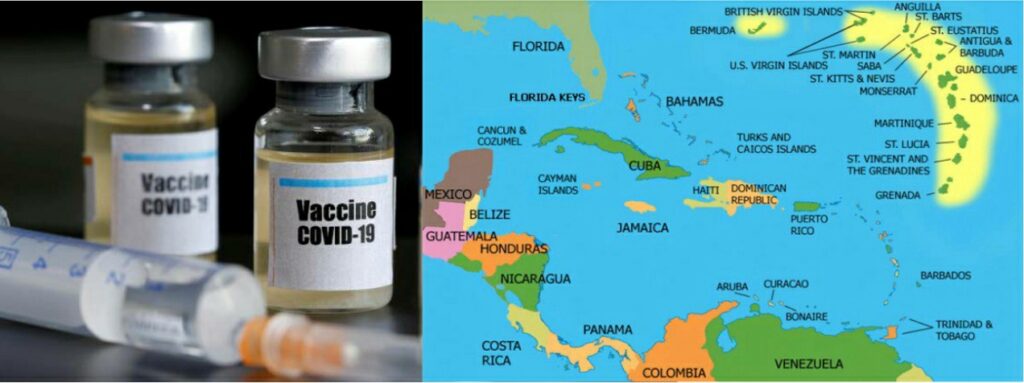

The Caribbean Public Health Agency (CARPHA) reported today that 74% of residents in six Caribbean countries are willing to take the Covid19 vaccines to protect themselves against the virus. The information came out of a survey done between 17th February to 18th June 2021.
The countries involved in the report are Barbados, Curacao, Guyana, Jamaica, Saint Lucia, and Trinidad and Tobago. Twenty-six countries were asked to provide data but only six were able to meet the minimum threshold.
The agency referenced three surveys as the basis for their study. One of the studies that triggered the alarm was conducted by Johns Hopkins Centre for Communication Programs reported that 72% of Jamaicans and 59% of persons living in Trinidad and Tobago would not accept a COVID-19 vaccine if it were made available to them. The other was conducted among healthcare workers in the Cayman Islands which reported that 48% were unwilling to take the vaccine.
CARPHA’s report used a total of 2,302 individuals aged 18 and older to provide data for the survey. The participants were mostly females (66%) and between the ages of 31 and 60 years (68%); 63% of the participants were from urban areas; 40% indicated having an undergraduate’s degree.

A total of 312 (14%) of respondents were healthcare workers. A higher percentage of healthcare workers were vaccinated compared to non-healthcare workers (64.4% vs 49.2%). Of the number of healthcare workers that were not vaccinated, vaccine non-acceptance was 22.5%, and undecided was 36.9 percent.

Vaccination for your children and elderly parents
Participants were asked whether they would vaccinate their children and elderly parents with the COVID-19 vaccine. The percentage of participants who reported that they would vaccinate their elderly parents was higher than those who reported that they would vaccinate their children (53% vs. 38%)
Concerns about vaccine
The report stated that 52.9% of participants indicated that they had no concerns about the COVID-19 vaccine, while 47.1% indicated that they were. The top three concerns persons have according to the survey were: side effects of the vaccine, the speed at which the vaccines were created, and not having enough knowledge.
CARPHA Conclusion
In conclusion, CARPHA said “The overall vaccination acceptance rates differed significantly with participants’ Country, Age, Education, Healthcare worker status, and Concerns about vaccination having more concerns is associated with significantly less vaccination rates. The vaccination acceptance rates for elderly parents of the participants were higher compared to their children (53% vs. 38%), while concerns about vaccination against COVID-19 among the participants themselves, was 47%.”
Warning from Dr Joy St John
Speaking at the launch of the report, Dr Joy St John; executive director of CARPHA, warned that even though the acceptance rate is 74 percent, persons and countries should not be complacent. “You need to get as much, even as close to 90 to 95 percent of the eligible population vaccinated, before there is any possibility that those who are not vaccinated wouldn’t contract the virus.” She cautioned that the Delta variant spread to around nine persons whereas the Alpha has a spread rate of two to three.
“It seems as if those who are affected are younger and younger. We really need to be focusing not so much on the percentage (but if we do) then it is going to be 90 percent and over.” Dr St John advised that, “these finding need to be disseminated. We need to fill the void that is being filled by misinformation, fake news, and scare tactics,” she said. The executive director said, “some of the member states (of CARICOM) are struggling with numbers of cases that are causing the health systems to buckle and sometimes collapse, and there are increases in deaths.”
Going forward
She went on to say that going forward, “we should not just give the information at the regional level but in each country, there needs to be dissemination to groups, and they need to be talking to smaller groups.” She said community engagement is what is required to change the current behavior to a larger acceptance of the vaccine. Caribbean people she said, looks for proof of safety and organization, and as more and more people are vaccinated this will provide more comfort.